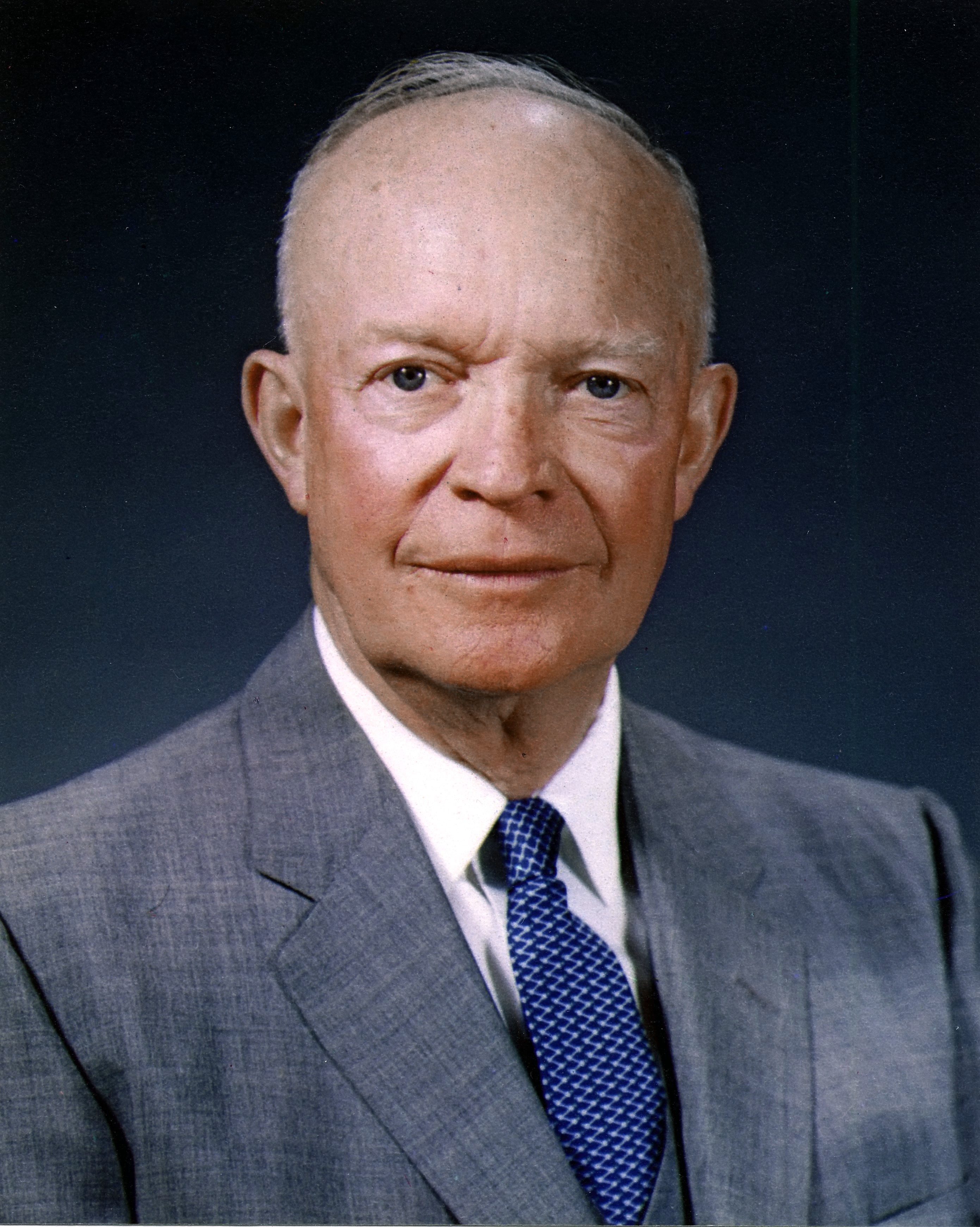Frases célebres de Dwight David Eisenhower
Sin fuentes
Frase pronunciada en el año 1953.
Sin fuentes
Frase pronunciada luego de haber reducido la tasa de mortalidad de Nomandía, esperada en un 70% a un 20%.
Fuente: El libro que dio forma al mundo. Mangalwadi, Vishal. Página 405. Grupo Nelson. 2011.
Dwight David Eisenhower: Frases en inglés
Fuente: 1950s, Speech to the B'nai B'rith (1953)
As quoted in The White House Years: Mandate for Change: 1953–1956: A Personal Account (1963), p. 331
1960s
As quoted in Eisenhower and the Suez Crisis of 1956 (1995) by Cole C. Kingseed, p. 27
1960s
1950s, Address at the Philadelphia Convention Hall (1956)
1950s, Atoms for Peace (1953)
1950s, First Inaugural Address (1953)
May 26 1944 letter as qtd. in “The Law of Armed Conflict: Constraints on the Contemporary Use of Military Force”, edited by Howard M. Hensel, 2007, p. 58.
1940s
Radio and Television Report to the American People on the Developments in Eastern Europe and the Middle East (October 31, 1956). Source: Eisenhower Presidential Library. Archived https://web.archive.org/web/20210125121539/https://www.eisenhowerlibrary.gov/eisenhowers/quotes from the original https://www.eisenhowerlibrary.gov/eisenhowers/quotes on January 25, 2021.
1950s
“The only way to win the next world war is to prevent it.”
Address at a Rally in the Civic Auditorium, Seattle, Washington (October 17, 1956). Source: Eisenhower Presidential Library. Archived https://web.archive.org/web/20210125121539/https://www.eisenhowerlibrary.gov/eisenhowers/quotes from the original https://www.eisenhowerlibrary.gov/eisenhowers/quotes on January 25, 2021.
1950s
Remarks to the Leaders of the United Defense Fund (April 29, 1954). Source: Eisenhower Presidential Library. Archived https://web.archive.org/web/20210125121539/https://www.eisenhowerlibrary.gov/eisenhowers/quotes from the original https://www.eisenhowerlibrary.gov/eisenhowers/quotes on January 25, 2021.
1950s
Remarks at the Republican Campaign Picnic at the President's Gettysburg Farm (September 12, 1956). Source: Eisenhower Presidential Library. Archived https://web.archive.org/web/20210125121539/https://www.eisenhowerlibrary.gov/eisenhowers/quotes from the original https://www.eisenhowerlibrary.gov/eisenhowers/quotes on January 25, 2021.
1950s
“Change based on principle is progress. Constant change without principle becomes chaos.”
Address at the Cow Palace on Accepting the Nomination of the Republican National Convention (August 23, 1956). Source: Eisenhower Presidential Library. Archived https://web.archive.org/web/20210125121539/https://www.eisenhowerlibrary.gov/eisenhowers/quotes from the original https://www.eisenhowerlibrary.gov/eisenhowers/quotes on Janunary 25, 2021.
1950s
Letter to Adam Clayton Powell Jr. (June 6, 1953); Source: United States of America Congressional Record: Proceedings and Debates of the 84th Congress, First Session, Volume 101, Part 8, July 1, 1955 to July 19, 1955 (Pages 9697 to 11002), here page 9743 https://books.google.de/books?id=iOsH3GosOr4C&pg=PA9743&lpg=PA9743&dq=We+have+not+taken+and+we+shall+not+take+a+single+backward+step.+There+must+be+no+second+class+citizens+in+this+country.&source=bl&ots=K03o4EGJa7&sig=ACfU3U0UNcrI-GB16SjdgDCoI3g2chwJkg&hl=de&sa=X&ved=2ahUKEwjVu9eS9rzuAhUJkhQKHeSKBNEQ6AEwBXoECAYQAg#v=onepage&q=We%20have%20not%20taken%20and%20we%20shall%20not%20take%20a%20single%20backward%20step.%20There%20must%20be%20no%20second%20class%20citizens%20in%20this%20country.&f=false.
1950s
State of the Union Address (February 2, 1952). Source: Eisenhower Presidential Library. Archived https://web.archive.org/web/20210125121539/https://www.eisenhowerlibrary.gov/eisenhowers/quotes from the original https://www.eisenhowerlibrary.gov/eisenhowers/quotes on January 25, 2021.
1950s
To his personal barber multiple times during his presidency from 1953-1961
1950s
“Mob rule cannot be allowed to override the decisions of our courts.”
1950s, Address to the American People on the Situation in Little Rock (1957)
Fuente: From remarks recorded for the "Back to God" Program http://www.presidency.ucsb.edu/ws/?pid=10414 of the American Legion, which was broadcast over radio and television from 8:00 – 8:30 PM on 20 February 1955
